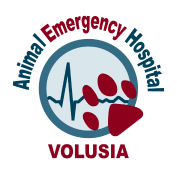Pets are curious by nature, so “investigating” a new item is quite normal to them. Unfortunately, some of these items/products may be dangerous – or even fatal. Because of this, National Poison Prevention Awareness Month also focuses on protecting dogs and cats from potential dangers around the home, garage, and yard.
Top Pet Poisons
Cats and dogs can become quite ill after ingesting many house-hold foods, products, and plants.
Top poisonous house-hold products to dogs include:
- Chocolate, especially bakers and dark chocolate
- Xylitol, the sweetener used in sugarless gums and candies
- NSAIDs, such as ibuprofen and naproxen
- Over-the-counter cough, cold, and allergy medications
- Rodenticides (rat and mouse poison)
Top poisonous house-hold product to cats include:
- Lilies and all plants in the Lilium species, such as Easter, Tiger, and Asiatic lilies
- House-hold cleaners that are concentrated, such as toilet bowl or drain cleaners
- Flea and tick treatments that are created for use on dogs
- Antidepressants, such as Cymbalta and Effexor
- Rodenticides (rat and mouse poison)
Here in the Volusia and Flagler County area, pet parents need to be aware of these common poisonous items:
- Plants, such as the sago palm, azalea, kalanchoe, and dieffenbachia
- Mushrooms commonly found in damp yards, gardens, and flower beds
- Animals including Geckos and toads, especially Bufo toads, snakes – especially Coral snakes
Is It Safe to Give Marijuana to My Pet?
No, marijuana (weed) is not safe for pets, as it is toxic to both cats and dogs due to the amount of THC (tetrahydrocannabinol)—the psychoactive ingredient that makes people high. Please do not smoke or consume edibles (foods laced with marijuana) around your pets.
If you believe your dog or cat has ingested any amount of marijuana, please seek veterinary medical attention immediately. Here at AEHV, our first priority is to help pets in need, and we will never bestow judgement on pet parents. We get it, accidents happen.
What About CBD?
Cannabidiol (CBD) oils are a bit different since CBD is made from hemp plants and contain little to no amounts of THC. While CBD oils have gained popularity over the years, there has been limited research on the benefits in animals. So, many in the veterinary industry are waiting for more data and verified research before recommending CBD for pets.
We recommend to always speak with your veterinarian before giving your pet any form of medication.
For a complete list of common pet poisons, click here.
Symptoms of Pet Poisoning
Some poisons will result in an immediate reaction for your pet, while other toxins may take a few days before signs are visible. While there is not one set list of pet poisoning symptoms, these are general symptoms pet parents should look for:
- Drooling, vomiting, loss of appetite, and/or diarrhea
- Lethargy and weakness
- Pale or yellowish gums
- Change in thirst and/or urination
- Nervousness, hyperactivity, muscle tremors, seizures, and/or coma
Our Animal Emergency Hospital in Ormond Beach is Open 24/7 for All Emergencies
If you suspect your pet has ingested a poisonous item, call the National Animal Poison Control Center at (888) 426-4435, or seek emergency veterinary care at AEHV immediately – no appointment is ever necessary.
Do NOT give your pet any milk, food, salt, oil, hydrogen peroxide, or other home remedies to induce vomiting – these may do more harm than good. In many cases, especially in cats, stronger veterinary prescription medications are necessary to help aid a pet in vomiting up a poison.
Before visiting our emergency care team, collect a sample of the poisonous material, along with the packaging, vial, or container. If this information is not available, please provide the poison source and when it was ingested. We will use this information when performing tests on-site and working with poison control to expedite treatment.
With a little bit of prevention and planning during March, you can help reduce your pet’s risk of accidental poisoning – and if your pet does get its paws on a dangerous item, contact our team any time day or night at (386) 252-0206.

